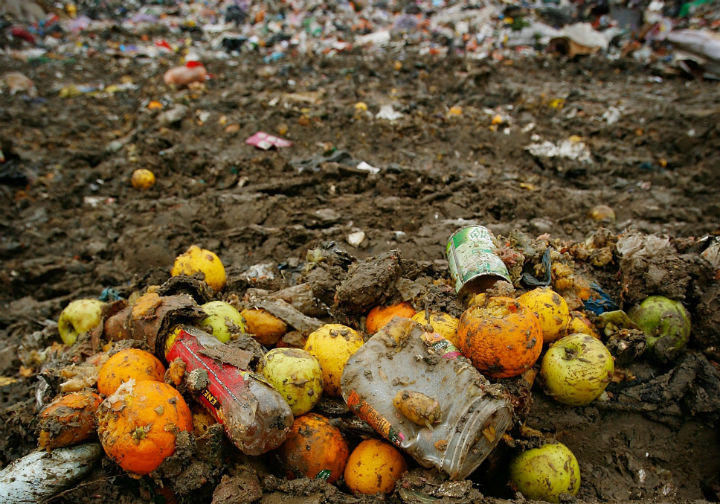The average London household disposes of $600 worth of food waste every year, according to a new study out of Western University.

In a survey of 1,300 homes in the Forest City, people said they had discarded food an average of 4.77 times in the previous week, making up a total of 5.89 food portions. Most often, respondents said they’d bought or prepared more than they could eat before it went bad.
“I think you’d find similar results across the country,” said the study’s lead author and researcher, Paul van der Werf. He’s an environmental consultant and a project adviser with Western’s Human Environments Analysis Laboratory (HEAL).
London is one of the few cities left without a green bin program — it’s getting one starting at the end of 2020. But van der Werf warns that green bins aren’t a solution, and communities that have organic waste collection shouldn’t think they’re “in the clear,” he explained.
“It’s better than going into (a) landfill, but most of it is still food that people could have eaten,” van der Werf said.

Get breaking National news
When it comes to getting people to buy less and consume more, van der Werf says cash — rather than good intentions, environmental concerns or social cost — is the biggest motivating factor.
“When people hear Canadians waste $31 billion per year in food, they can’t relate. They’re not billionaires. But when I say to them, on average, households throw out $600 per year, that’s a lot of motivation,” he said.
“If we can manage our food provisioning, storage and preparation then it would improve our sense of control over the situation.”
The study, which took place in co-operation with the City of London, was co-authored by HEAL director Prof. Jason Gilliland and Brescia University College Prof. Jamie Seabrook of the School of Food and Nutritional Sciences.











Comments